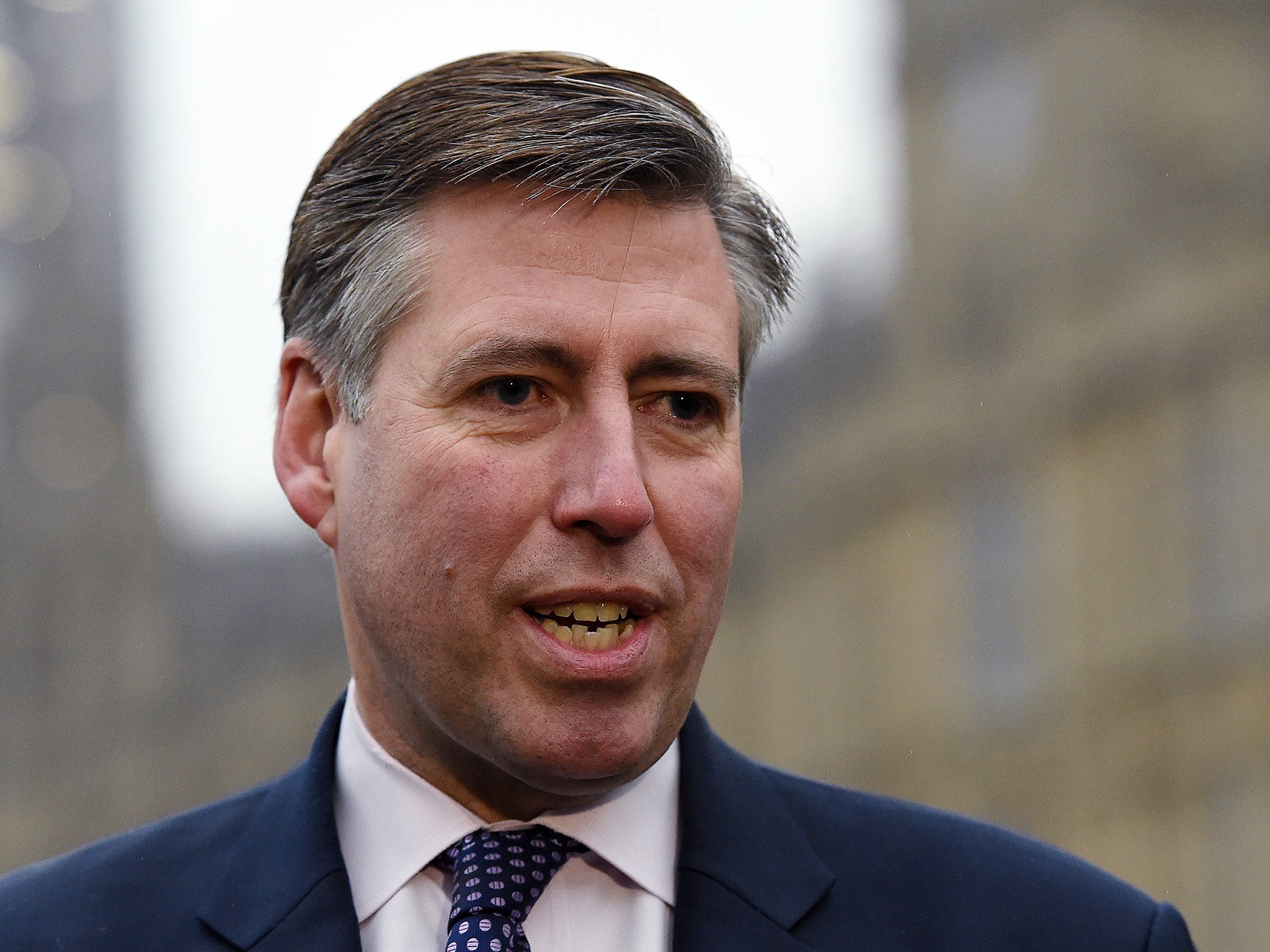What is Graham Brady’s Brexit amendment and why is it important?
The chair of the 1922 Committee has come up with an approach that might just revive the prime minister’s withdrawal agreement, even if just for a moment, writes Joe Watts

Theresa May appears to have a new hope of getting a positive result on Tuesday, when MPs will begin what once for her seemed like a potentially career-ending round of votes on Brexit.
After the devastating defeat of her proposed withdrawal agreement, when more than 100 of her own MPs defied her, it now seems like she may get a majority for an approach that could revive that plan – the operative word is most certainly “could”.
This last shot of adrenalin for her deal, bringing it back from the brink of oblivion even if just for a moment, comes in the form of what is now being called the Brady amendment.
Taking a step back for a moment, Tuesday’s votes have come about precisely because of what seemed like the impossibility of Ms May pushing her deal through a Commons that was opposed to it from both the Remain and Leave wings, from both Tory and Labour benches.
Instead, MPs backed a renegade plan that forced her government, following the record defeat she suffered on her withdrawal agreement, to effectively allow the Commons to vote on alternative ways to move forward.
Since then MPs have been busy building cross-party coalitions and coming up with a series of different approaches and laying “amendments” that will be voted on when Tuesday’s debate ends.
These include forcing Ms May to delay Brexit by extending Article 50 (the Cooper amendment), pushing for a second referendum (the four doctors/Wollaston amendment, which was in the end never tabled), taking power to set the parliamentary schedule from the executive and giving it to MPs to decide what happens next (the Grieve amendment) and other variations.
But funnily enough, the MPs pursuing these plans have discovered that they are all hamstrung by the same problem hamstringing the prime minister – securing a majority for anything in a hideously divided Commons is a Herculean task.
And even if you can, there is no guarantee the loose cross-party coalition you cobble together to back a particular strategy in one vote will then survive moving through this politically super-charged parliament, full of other MPs determined to use every sidewinding manoeuvre to tear it down.
So for a moment at least the spotlight of promise swings back to May’s deal, courtesy of the Brady amendment that will also now be voted on this Tuesday.
Funnily enough, the MPs pursuing these plans have discovered that they are all hamstrung by the same problem hamstringing the prime minister – securing a majority for anything in a hideously divided Commons is a Herculean task
Sir Graham Brady is chair of the Conservative Party’s powerful backbench 1922 Committee, which is part of the reason his plan is seen as noteworthy – if he is putting it down, it probably already has the backing of a significant number of Tory MPs who like him voted against May’s deal first time round.
His amendment would mean the Commons accepting Ms May’s withdrawal agreement as long as the hated “Irish backstop” is renegotiated.
The backstop arrangement comes into play if the UK has failed to reach an agreement on a new trading relationship with the EU by December 2020, and much to the anger of Eurosceptic Tories, locks Britain into a potentially indefinite customs union in order to avoid a hard border suddenly appearing between Ireland and Northern Ireland.
There have been previous amendments that sought to address unease at the backstop, either suggesting that May’s deal only be accepted if it is subject to a time limit or if it is removed from the withdrawal agreement altogether.
These have made the government uneasy, because they would appear to directly contradict the withdrawal agreement already struck with Brussels.
The Brady amendment, however, is more subtly worded and merely “requires the Northern Ireland backstop to be replaced with alternative arrangements to avoid a hard border”.
In other words, it says that the UK will ratify the deal arduously negotiated over 19 months, if only we can find something else to achieve the same thing that the backstop achieves, but which isn’t the backstop.
It seeks to get rid of the backstop, which keeps the DUP and Tory Brexiteers happy, but would do so through reasonable negotiations that also aim to realise the EU’s goals, thus allowing the government to say it is not explicitly seeking to throw away the withdrawal agreement.
Because of that delicate balance, it may just get a wafer-thin majority in the Commons on Tuesday. Problem solved, right? Don’t be silly, this is Brexit.
The Brady amendment might give a minor stay to May’s withdrawal agreement, but her strategy immediately faces the prospect of a major cardiac arrest when she goes back to Brussels to renegotiate the deal.
Almost every public utterance in the EU is that the backstop cannot be renegotiated and the withdrawal agreement cannot be reopened – if that position really is unmoveable, then it looks like her deal truly is dead.
But in between the lines and behind the scenes, there have been a few scraps, the smallest signs, that there may be room for manoeuvre – the row earlier this week between Dublin and Brussels over the exact stance on the Irish border, for example, and anonymously quoted officials suggesting that maybe, just maybe, the EU might be willing to reopen the withdrawal agreement.
The government is pinning its hopes that something can change. The Brady amendment, if nothing else, would give them an opportunity to find out.
Got an unanswered question about Brexit? Send it to editor@independent.co.uk and we’ll do our best to supply an answer in our Brexit Explained series
Join our commenting forum
Join thought-provoking conversations, follow other Independent readers and see their replies
Comments